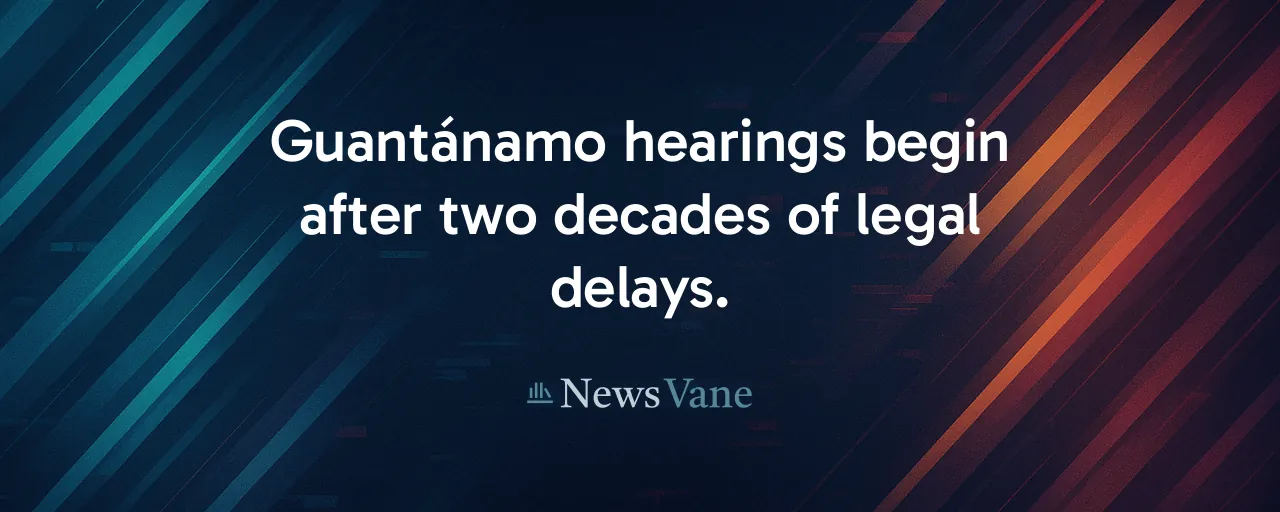A Long-Awaited Reckoning
The Department of Defense opened its doors to media for pre-trial hearings in the case against alleged 9/11 mastermind Khalid Shaikh Mohammad and four co-defendants, set for September 22 to October 10, 2025, at Naval Station Guantánamo Bay. These proceedings mark another chapter in a legal saga that has spanned over two decades, leaving families of the 2,977 victims caught between hope for justice and frustration over endless delays. The hearings, transmitted to Fort Meade, Maryland, via closed-circuit television, aim to address war crime charges tied to the 2001 attacks that reshaped the world.
The road to this moment has been anything but smooth. Since the defendants' arraignment in 2012, the case has slogged through a mire of legal motions, classified evidence disputes, and logistical hurdles. The question looms large: can a military commission deliver accountability that satisfies victims, upholds legal standards, and restores public trust? The answer hinges on balancing transparency, fairness, and the complex realities of national security.
The Human Toll of Waiting
For families of 9/11 victims, each hearing reopens old wounds. Some relatives demand a full trial with the possibility of death sentences, believing only the harshest punishment honors the lives lost. Others, weary of prolonged litigation, support plea deals that could guarantee life sentences in exchange for closure. The emotional weight is undeniable, with many feeling torn between justice and the need to move forward. The Department of Defense has liaison programs to support families, offering options for in-person attendance or remote viewing, but the process remains grueling.
The defendants, held at Guantánamo since 2006, face their own challenges. Defense teams argue that evidence obtained through coercive interrogations, detailed in the Senate Intelligence Committee's 2014 report, undermines the case's integrity. These disputes have fueled a backlog of over 300 pre-trial motions, according to Columbia Law School's Human Rights Clinic, delaying progress and testing the patience of all involved.
A Costly and Complex System
The financial burden of Guantánamo's military commissions is staggering. The RAND Corporation estimates that these proceedings cost five times more per case than federal terrorism trials, with Guantánamo's detention and commission operations projected to reach $540 million in 2025 alone. Taxpayers foot the bill, including $800 round-trip airfare for journalists covering the hearings. Transferring trials to federal courts could slash annual costs to under $50 million after initial investments, per the Government Accountability Office.
Logistical constraints add to the challenge. Strict security protocols limit real-time reporting, and hurricane season often disrupts flight schedules. The Expeditionary Legal Complex, where hearings occur, is a fortress of secrecy, designed to protect classified intelligence but criticized for stifling public oversight. These barriers raise questions about whether the system can deliver justice efficiently or if alternative venues might better serve the public interest.
Balancing Secrecy and Openness
Transparency remains a sticking point. The Department of Defense allows 26 journalists per rotation to attend in person, with over 100 public observers able to watch via closed-circuit television at sites in Maryland, Massachusetts, New York, and Virginia. Daily transcript releases and expanded viewing options signal efforts to improve access. Human rights organizations argue that excessive secrecy, driven by the need to shield classified evidence, erodes public confidence in the process. Legal scholars note that disputes over coerced statements, governed by the Convention Against Torture, continue to stall progress.
Historical context sheds light on these tensions. The Military Commissions Acts of 2006 and 2009 established the legal framework for Guantánamo's trials, but earlier iterations were struck down as unconstitutional in 2006. The system has since faced scrutiny for jurisdictional flaws, with several convictions overturned on appeal. These setbacks highlight the difficulty of aligning military commissions with international legal standards while addressing national security concerns.
Seeking a Pragmatic Path
Recent plea negotiations offer a potential way forward. Analysts suggest that life sentences in exchange for detailed confessions could provide finality for victims' families while avoiding the risks of tainted evidence derailing a trial. Such a compromise would require congressional approval and robust transparency measures, like declassifying historical records, to maintain accountability. Bipartisan reports, including the 9/11 Commission, have long called for Guantánamo's eventual closure, citing its high costs and global reputational damage.
The stakes extend beyond this case. The outcome will shape how the United States addresses terrorism, balances human rights, and maintains alliances. Foreign governments, involved in potential repatriation or sentencing agreements, watch closely, as do taxpayers and policymakers tasked with funding Guantánamo's future. The challenge lies in crafting a process that honors the past without sacrificing the principles that define the nation's commitment to justice.
A Shared Goal Amid Division
The Guantánamo hearings underscore a universal desire for accountability, even as stakeholders disagree on the means. Families seek closure, defendants demand fair trials, and the public grapples with the costs and complexities of justice. The Department of Defense, tasked with navigating these demands, faces pressure to deliver a process that is both secure and transparent. The path forward requires pragmatism, from plea deals to enhanced oversight, to ensure the system serves those it was meant to protect.
As hearings unfold, the nation confronts a broader question: how to reconcile the pain of 9/11 with the pursuit of a fair and efficient legal process? The answer lies in decisions made now, from the courtroom to Congress, that will define justice for a generation. For those watching, the hope is that this chapter, long in the making, brings resolution at last.
